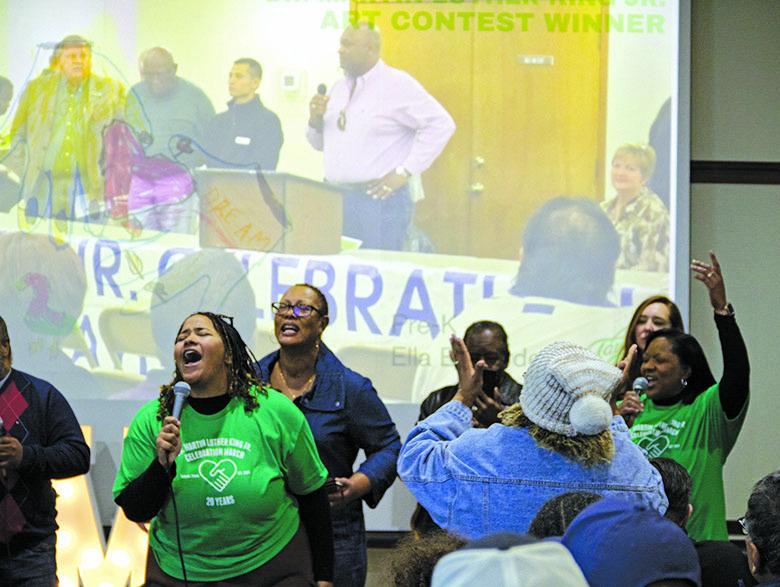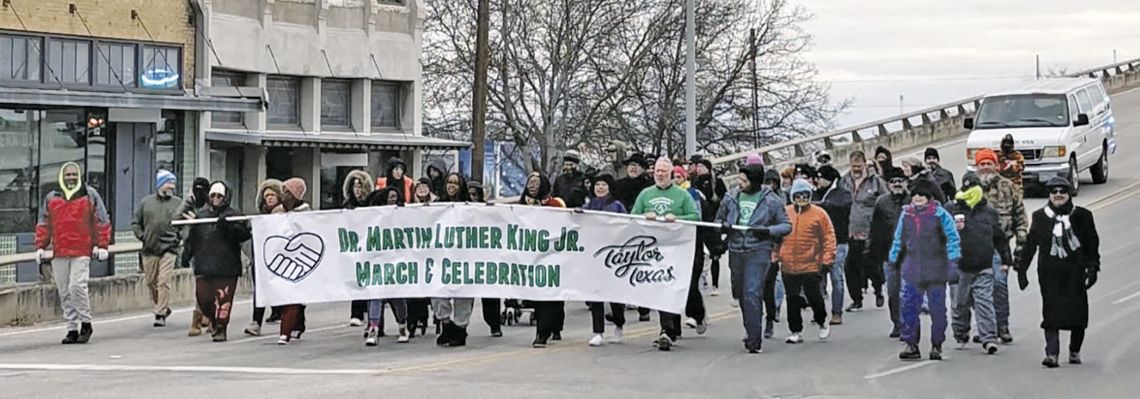Keeping the dream alive
As Taylor’s population grows, the city’s Martin Luther King Jr. Day Committee hopes its annual march and celebration will keep bringing the community together for another 20 years.
“This is the most people I have seen gathered in one place,” the Rev. Anthony Watson of The First Baptist Church of Taylor said. “(The city) is expected to get over 50,000 people within the next couple of years. … If you only hang to the remnant that you are used to, you’re going to have some 48,000 new people that don’t subscribe to your philosophy, and you’ll be left behind. So, we can come together now and be one. … It’s enough room for everybody to eat at the table.” The parade commemorates the vision and leadership of Baptist minister King, a leading U.S. civil-rights activist beginning in 1955 until he was felled by an assassin’s bullet in 1968. He advocated nonviolent civil resistance to racism and prejudice.
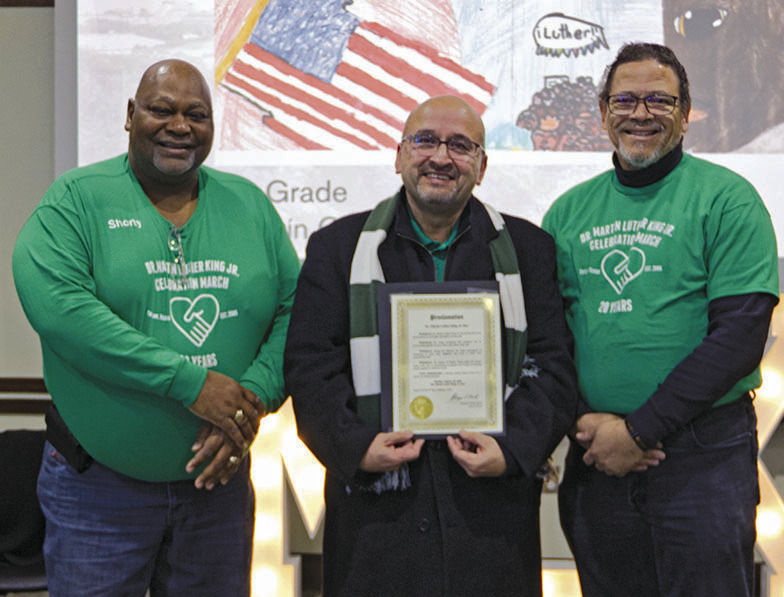
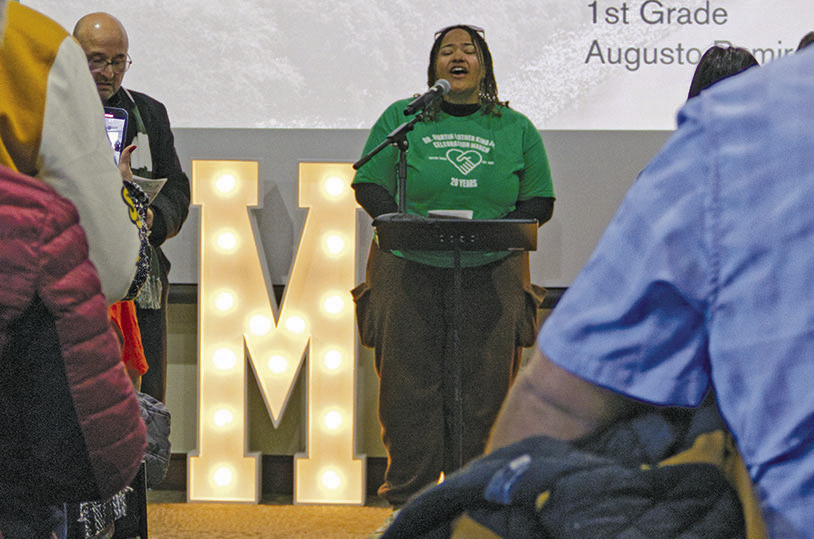
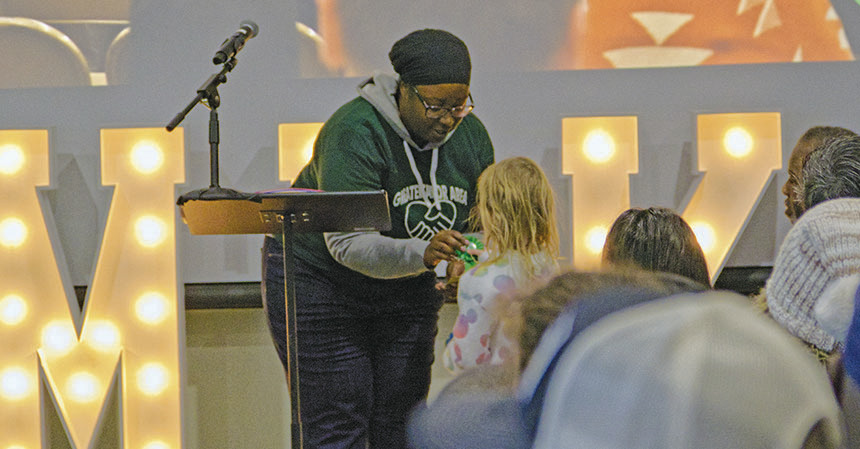
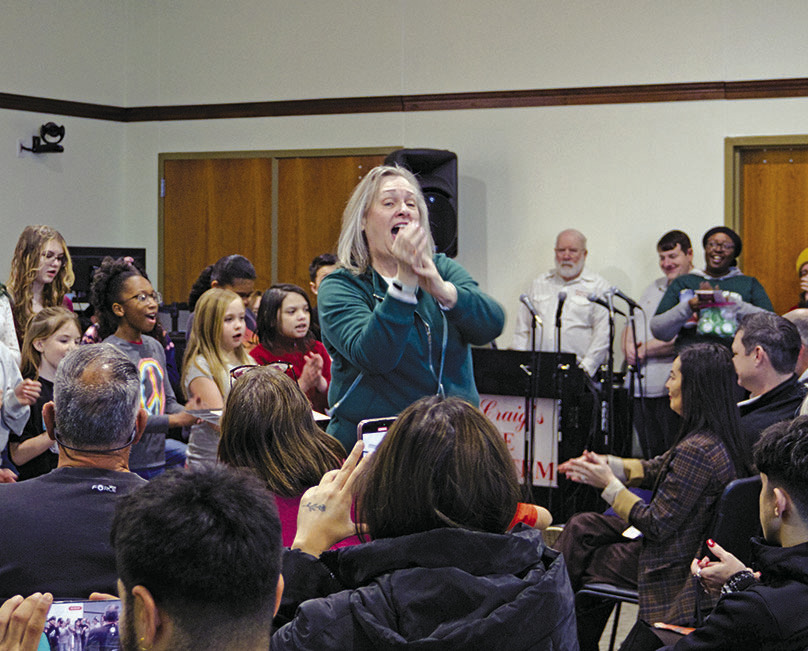
Watson launched the city’s marching tradition 20 years ago after being unable to attend one in San Antonio in 2005, having just moved to Taylor from his hometown.
Believing that Taylor should have a celebration of its own, Watson began talks with city officials that summer.
“As pastor of The First Baptist Church in Taylor, Texas, why are my members and myself having to drive somewhere else to commemorate Dr. King?” he thought at the time.
The city approved the march but didn’t offer much support as officials weren’t sure of its purpose that first year, organizers said.
“We couldn’t come down (Texas) 95 because they couldn’t shut 95 down by state law, but it was amazing how they could shut it down for a Christmas parade. We couldn’t walk over the bridge because, ‘You can’t do that.’ I said, ‘Well, you know what? That’s fine,’” Watson said.
The procession was initially going to end at City Hall, but falling snow led the marchers to conclude the route early at The First Baptist Church of Taylor and hold the first MLK Day celebration there.
“We didn’t overcome all the way. We overcame far enough to get where we had to go,” Watson said.
With more understanding of Watson’s goals, the city reached out to lend support year after year, with attendance growing each time.
“This is not the same Taylor. There (are) people that were not made here that are living here now,” Watson said. “And, if we all come together and continue the fabric working together, it’ll be even greater than what you could ever imagine.”
To ensure the city and its residents knew the march was for everyone and not just members of his church, Watson enlisted the help of childhood friend Shorty Mitchell, who has served as chairman of the MLK Committee for the past 16 years.
“I’ve heard people say, ‘They’re not going to let you do it in Taylor.’ … I have been able to do … everything in this community that I wanted to do since I’ve been here since 1984,” Mitchell said. “Taylor has been good to me.”
